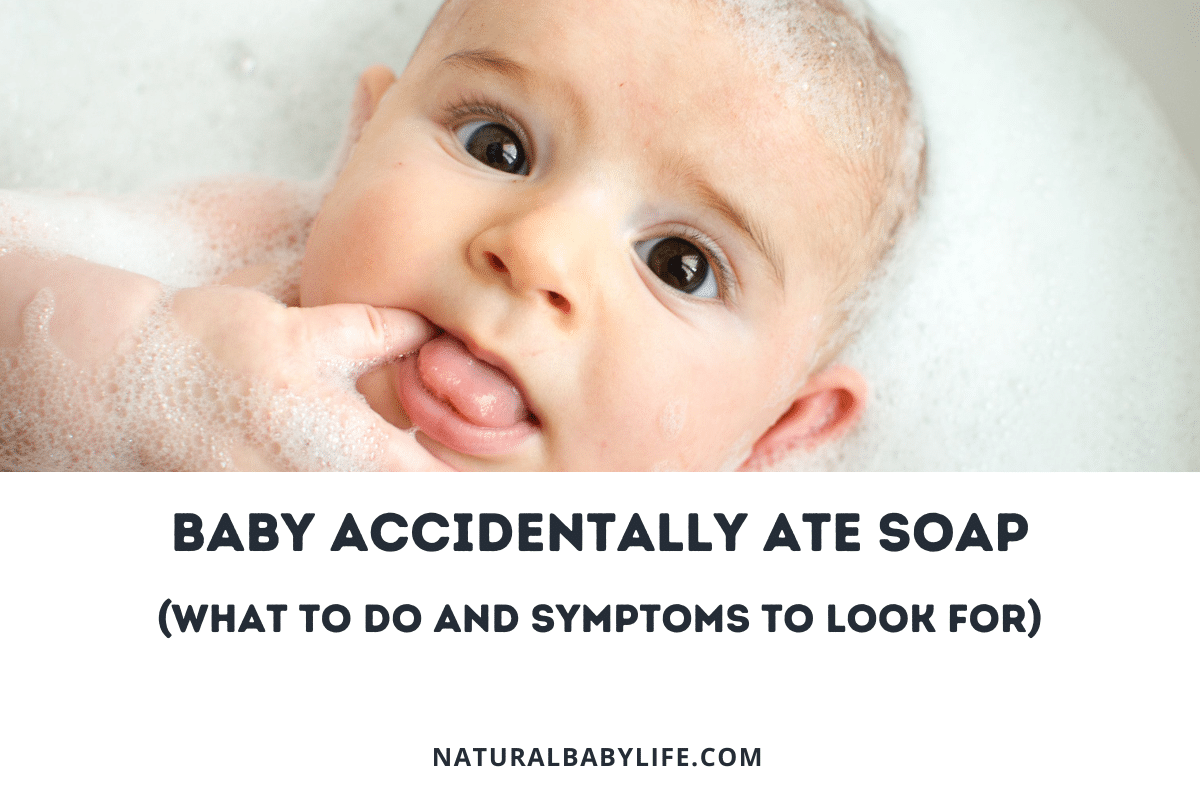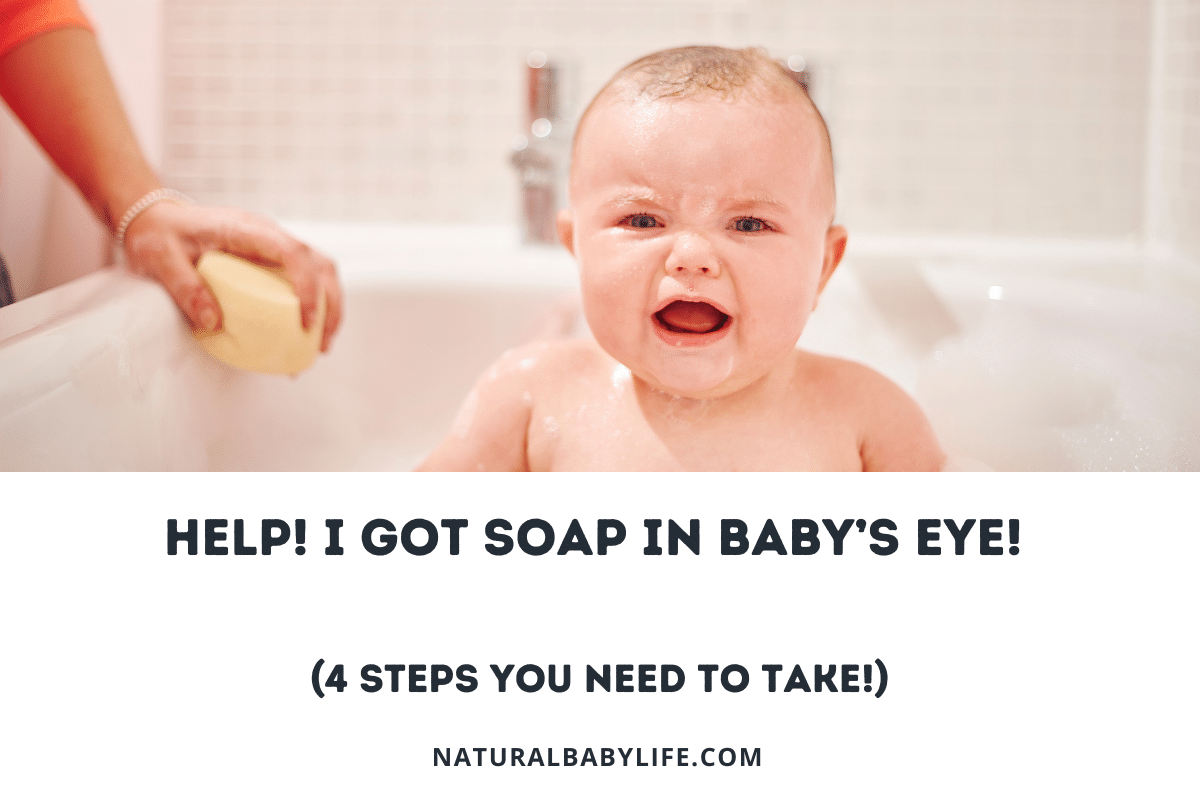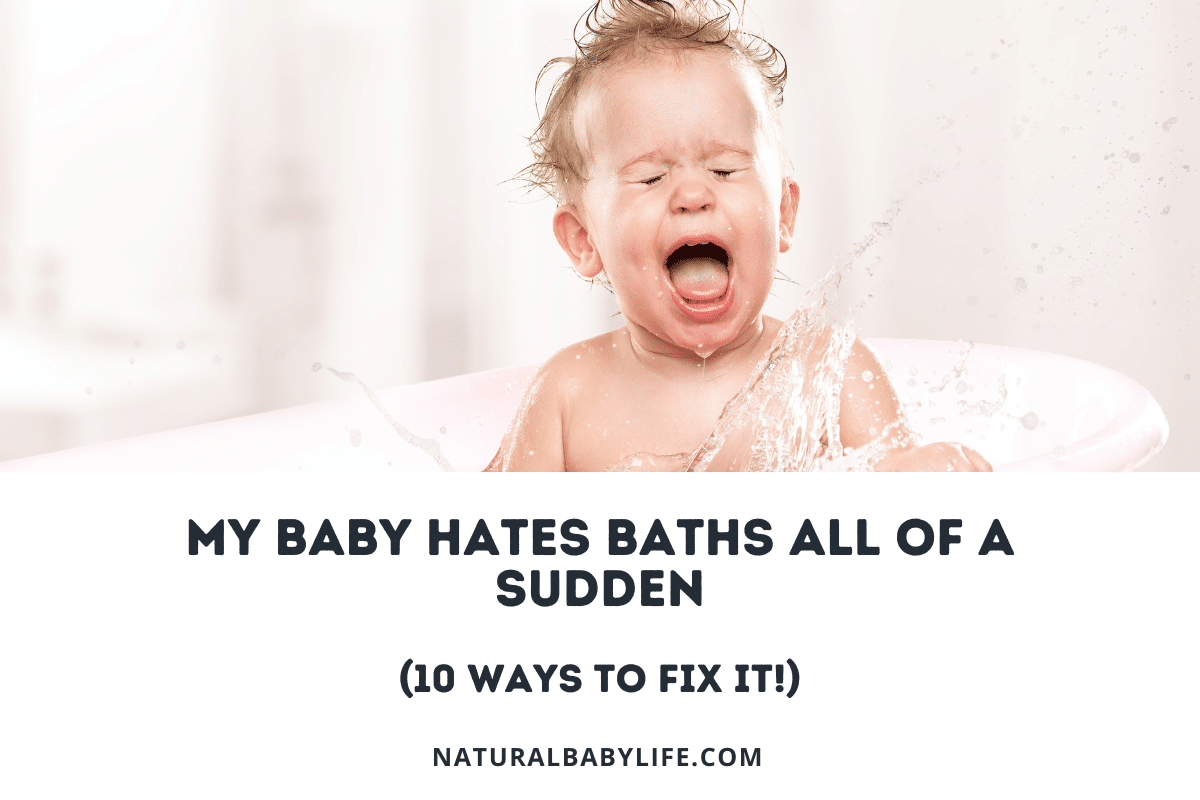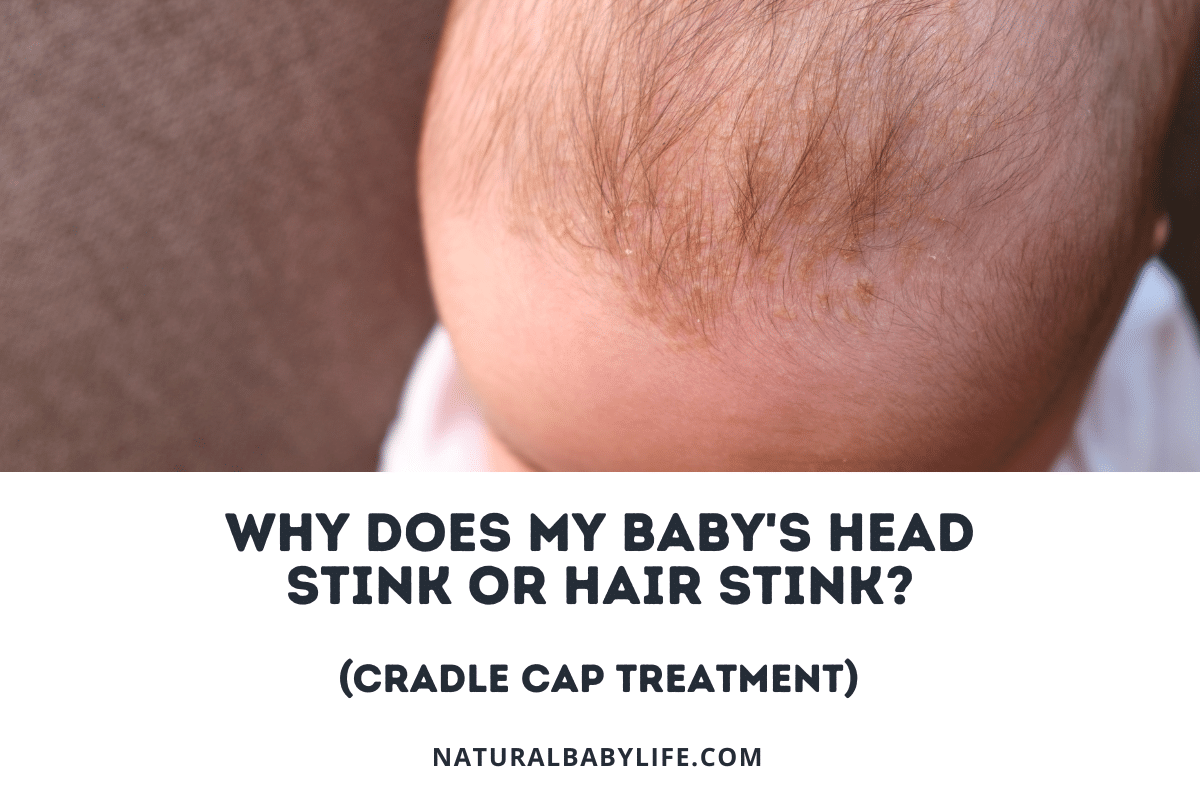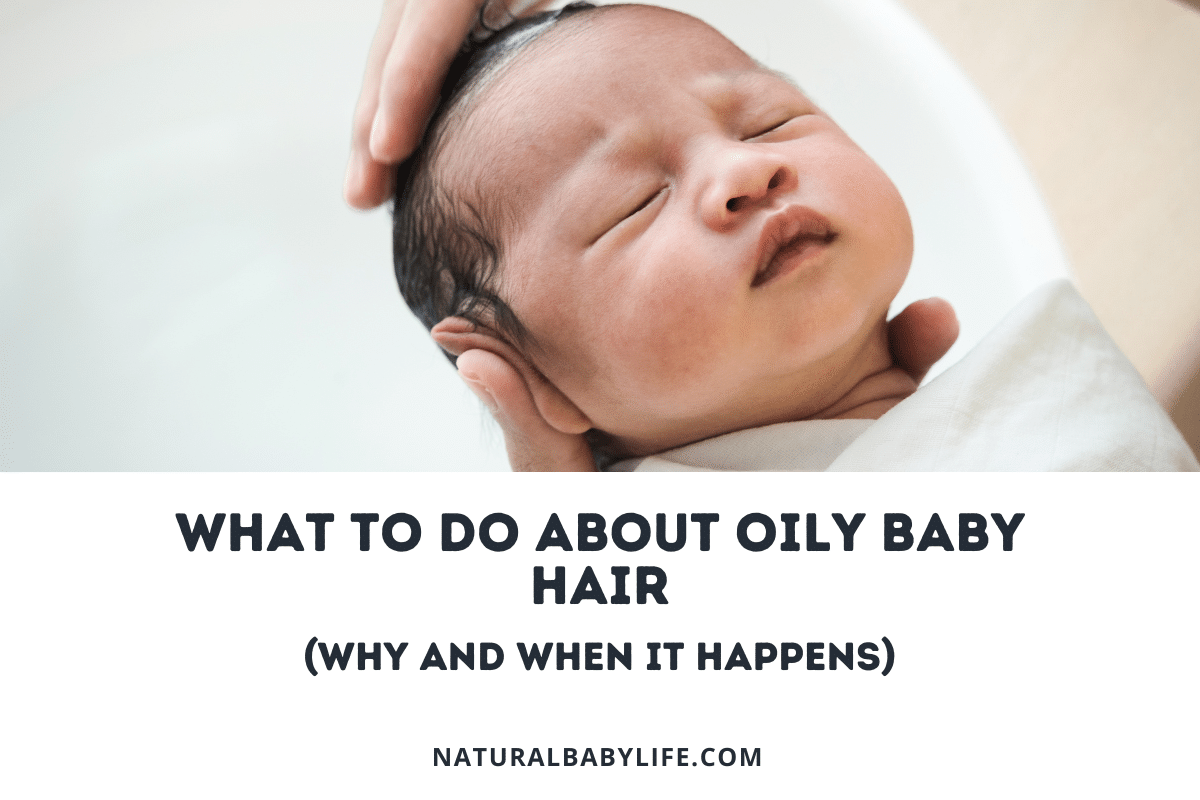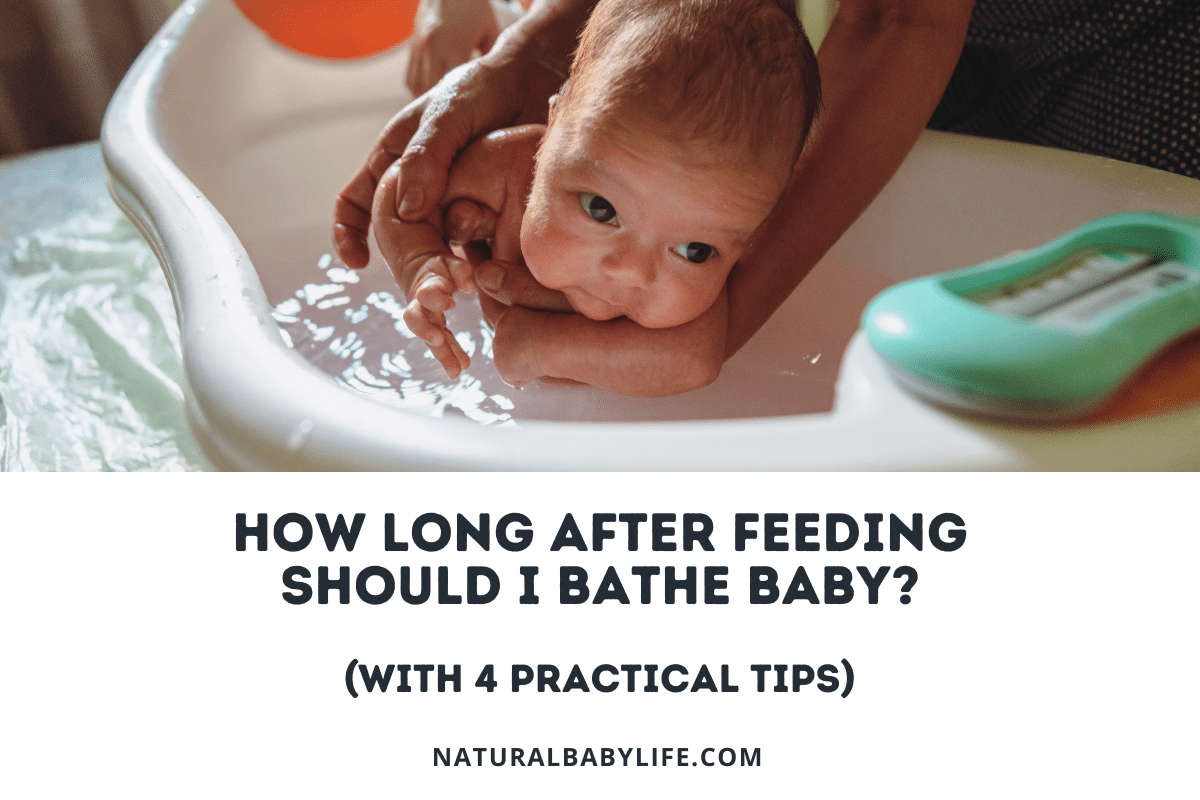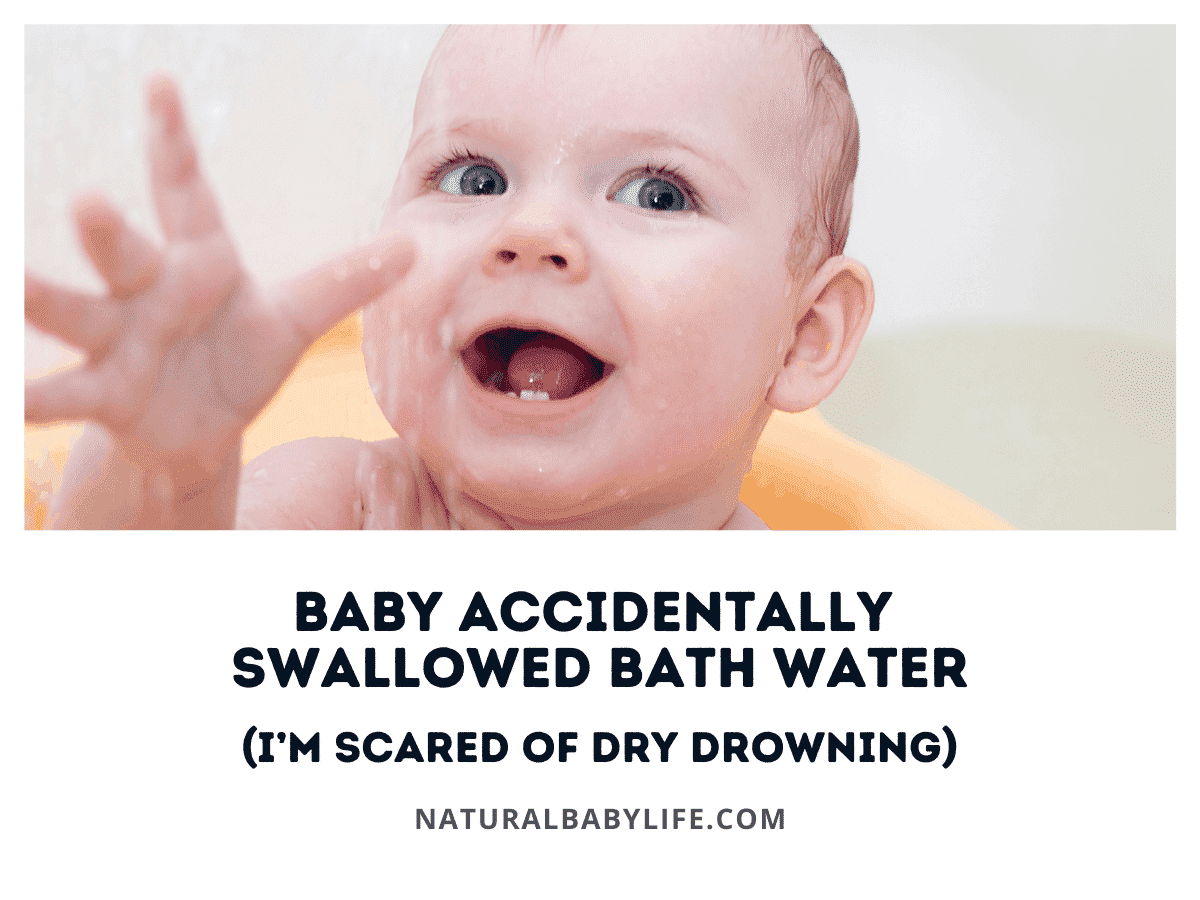Most babies love taking a bath. There’s nothing more exciting to them than playing with their bath toys and splashing in the water, but it seems like every time you turn around, they’ve got something in their mouth. More often than not, it’s soap. If your baby accidentally ate soap or shampoo, you might wonder what to do.
If your baby accidentally ate soap or shampoo during bath time, go ahead and give them some water to drink. There’s no reason to panic, but you should keep an eye on them. If your baby starts vomiting or has diarrhea, you might need to head to the ER. If you think your baby swallowed more than one mouthful or you’re not sure how much, call Poison Control immediately.
Read on for the different types of soap your baby might ingest, baby-safe soaps and shampoos, and how you can keep your little one from accidentally eating soap.
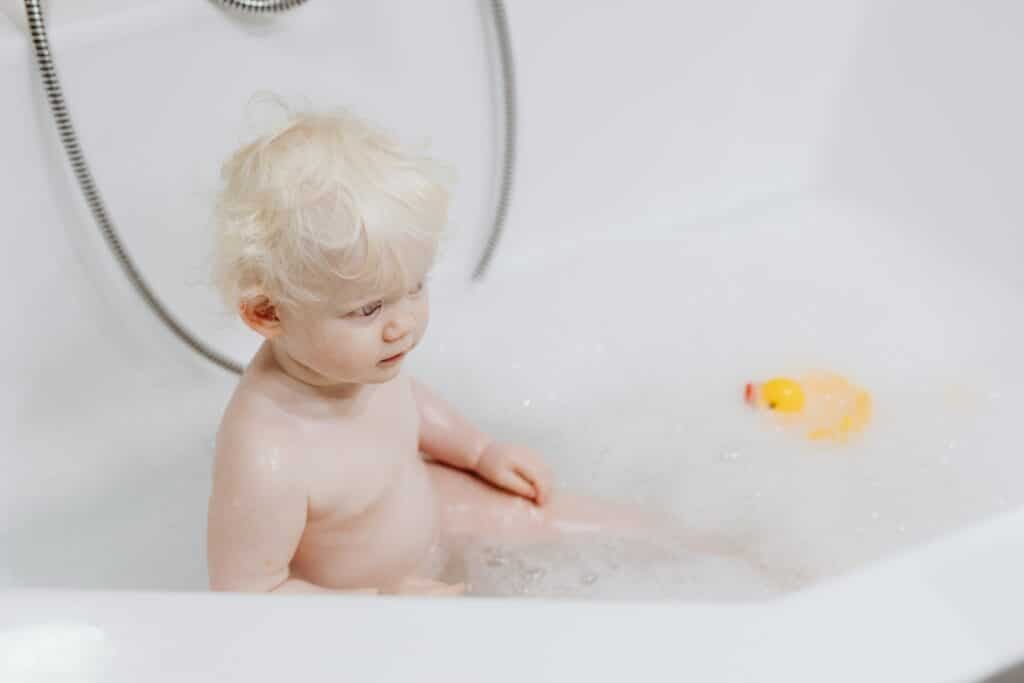
Table of Contents
What happens if your baby accidentally ate soap or shampoo?
Babies love to put anything and everything in their mouths. It’s one way they explore the world around them- but sometimes it can lead to them swallowing something they shouldn’t. If your little one swallows a little bit of body wash, bar soap, or shampoo, they will most likely be fine.
Although it’s no guarantee, soaps and shampoos that don’t contain these ingredients are far less likely to make your child sick:
- Fragrances
- Phthalates
- Parabens
- Formaldehyde
No matter what type of soap your little one consumed, give him some clean water to wash his mouth out and dilute the soap. If you have any doubt about how much or what she ingested, call Poison Control at 1-800-222-1222. If your baby starts to throw up or has diarrhea, it’s best to go ahead and take them to the emergency room.
Can eating soap harm my baby?
If baby eats soap, it could be harmful, but your baby will likely be okay, especially if they swallowed a small amount. Most soaps are considered minimally toxic, which means if they only ingest a little bit, the best thing to do is give them some clean water and look out for any symptoms.
Some soaps and shampoos are going to be more dangerous than others, so it’s a good idea to make sure that the only soaps and shampoos within baby’s reach are the ones just for him, that have only safe ingredients. If you’re looking for a recommendation for baby-safe washes, we’ve included some below.
Accidental soap poisoning can happen to any little one, so it’s important to know what to look for. Let’s take a look at the different types of soap or shampoo and what to do if your baby accidentally swallows them.
Shampoo/Conditioner
In general, shampoos and conditioners are considered mostly non-toxic, but they could cause some issues your baby swallows some.
A basic shampoo or conditioner may have ingredients that will upset your little one’s tummy, but a medicated shampoo will have stronger, potentially harmful chemicals. Always check the label on your shampoo or conditioner for the presence of any potentially harmful chemicals.
Body wash
If your baby consumes a little bit of body wash, there is little cause for concern.
All-natural body wash ingredients will be less of an irritant for your baby’s belly, and the real concern with body wash is any chemicals added to make the soaps smell good.
Always check the label on your baby’s body wash for the presence of any of the chemicals listed in the ingredients to avoid below.
Bar soap
Most bar soaps are going to be okay, but it’s important to look at the ingredients in the bar soap since some ingredients can be more harmful than others if they are ingested.
Bar soaps are also solid and easy to grab (when they’re dry) so it’s more likely that your little one will take a bite out of it rather than just a lick. In that case, it’s possible they’ll ingest more of this type of soap, and it can also be a choking hazard.
If your baby takes a bite out of the soap, check the label for any potentially harmful ingredients.
Cleaning soap
Cleaning soaps, degreasers, and other household cleaners are going to be the most dangerous kind of soap for your little one to swallow.
Soaps that are used for cleaning your home are likely going to contain more chemicals than a soap intended for baby’s bath time and should be kept locked away out of baby’s reach.
Even natural cleaning agents are often very dangerous when consumed as they often include high concentrations of the active ingredient. If your baby drinks dish soap or swallowed something harmful like a cleaning product, call a doctor or poison control right away!
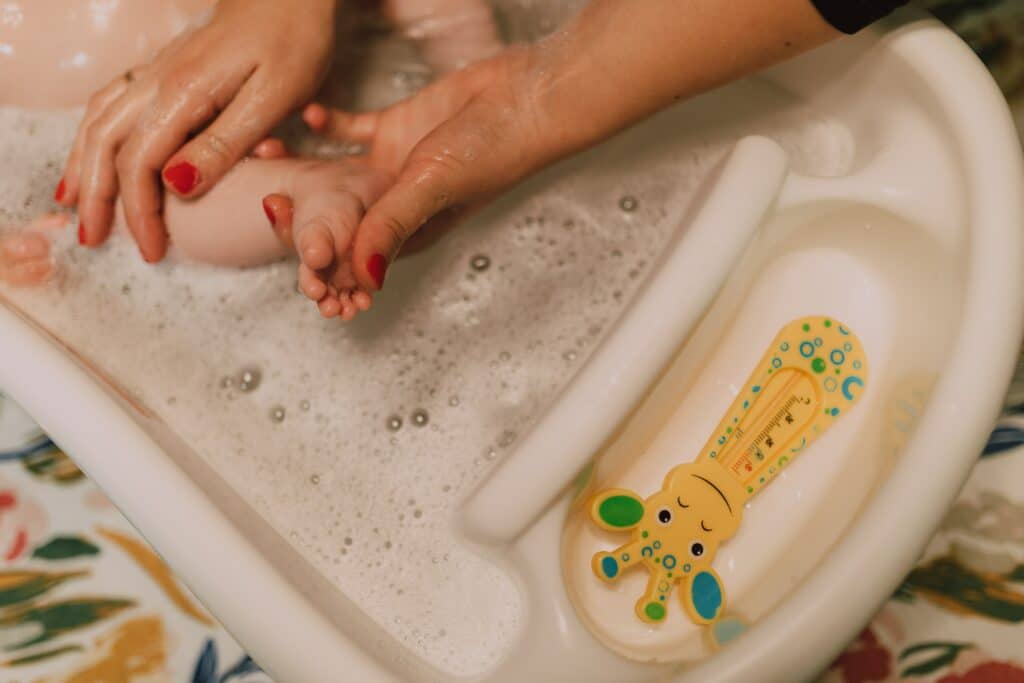
Do shampoo and soap contain unsafe ingredients?
Unfortunately, some shampoos and soaps do contain ingredients that are not considered safe. This includes products that are made specifically for babies.
Laboratory tests have confirmed many children’s bath products contain formaldehyde and/or 1,4-dioxane, both of which have been shown to be linked to cancer and skin allergies. Even diapers have been known to contain these harmful chemicals.
Years ago, Johnson & Johnson came under fire as a report from the Campaign for Safe Cosmetics was released that revealed the dangerous ingredients in their baby shampoo. They have since rebranded and changed their ingredient list.
Medicated shampoos aren’t usually poisonous if ingested, but they can definitely irritate baby’s stomach, causing nausea, vomiting, or diarrhea.
Ingredients to avoid
Every baby product has a number of ingredients and it’s difficult to know what’s safe and what’s not. So let’s talk about what you want to avoid in soaps and shampoos for baby.
For the most baby-friendly soaps and shampoos, avoid:
- Fragrance – Although the soap will smell nice, it can lead to allergies for baby and irritate his skin.
- Phthalates – Phthalates actually hide within fragrances, so you won’t see this one specifically listed on the shampoo or soap label. They aren’t recommended since they are associated with asthma and other respiratory problems.
- Parabens – Parabens are synthetic preservatives, and unfortunately, they are found in a lot of products. You will want to avoid these since they’re linked to cancer, endocrine disruption, and skin irritation.
- 1,4-dioxane – This is a tricky one that shows up in a lot of soaps and shampoos for babies, particularly the ones that are marketing as being “tear-free.” It’s linked to cancer, reproductive issues, as well as kidney and liver damage.
- Formaldehyde – Formaldehyde is a known carcinogen. It is definitely something that you want to avoid as an ingredient in baby’s soap and shampoo.
It’s not always possible to avoid every harmful ingredient, but it’s worth the effort to find natural products for your baby.
Buying baby-friendly soaps
Considering how common some of the harmful ingredients in soaps and shampoos can be, it can be a challenge to find safe soap and shampoo for your baby.
When buying baby-friendly soaps and shampoos, keep in mind that most of what’s on the front of the carton is marketing (not science), the shorter ingredient lists are better, and “all natural” doesn’t necessarily mean anything. Some websites will break down the function of every ingredient in their product to help you make your own decision.
Here are a couple of my favorite baby-safe shampoos and soaps:
Babo Botanicals Sensitive Baby 2-in-1 Shampoo & Wash – This one is fragrance-free, made in the USA, and carries the EWG Verified seal.
California Baby Super Sensitive Shampoo and Body Wash – Family-owned and operated, this is made in California and is free of added fragrance, common allergens, and irritants.
Burt’s Bees Baby Shampoo & Wash – It’s fragrance-free and tear-free while leaving out harmful ingredients like phthalates, parabens, petrolatum, and SLS. Plus, unlike many natural or organic brands, Burt’s Bees is available at most major retailers.
| Image | Title | Price | Prime | Buy |
|---|---|---|---|---|
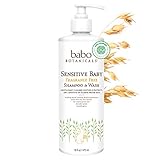 | Babo Botanicals Sensitive Baby 2-in-1 Shampoo & Wash | PrimeEligible | Buy Now | |
 | California Baby Super Sensitive Shampoo and Body Wash | PrimeEligible | Buy Now | |
| Burt's Bees Baby Shampoo & Wash | PrimeEligible | Buy Now |
Product prices and availability are accurate as of the date/time indicated and are subject to change. Any price and availability information displayed on [relevant Amazon Site(s), as applicable] at the time of purchase will apply to the purchase of this product.
Prices pulled from the Amazon Product Advertising API on: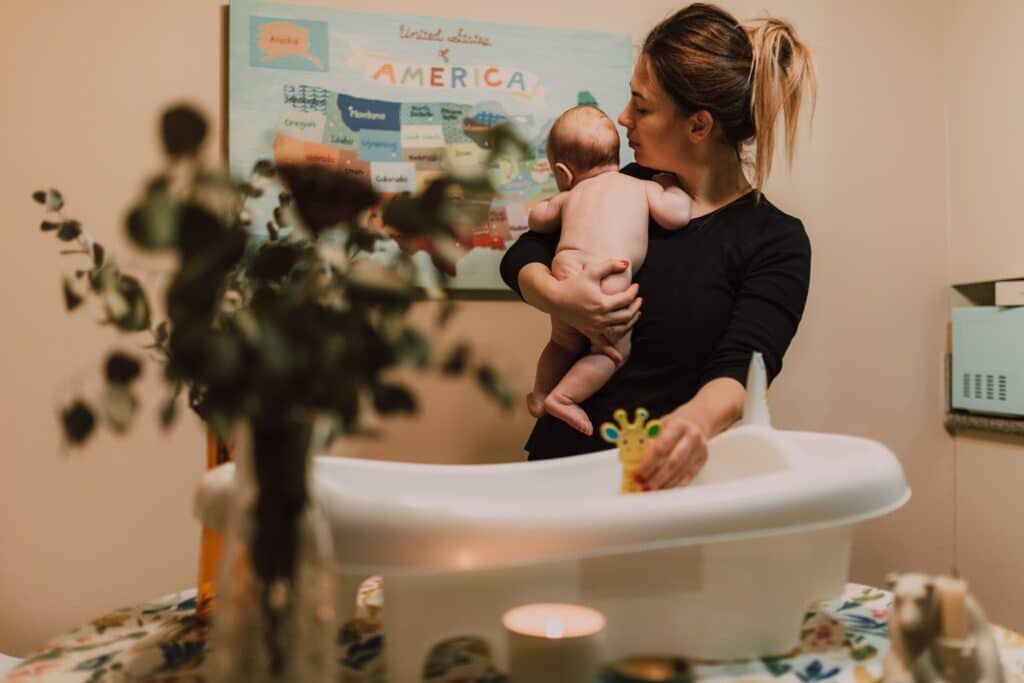
What to do if baby accidentally ate soap or shampoo
All parents know it’s hard to keep little ones from putting everything their mouths. If your baby eats a little bit of soap or shampoo, they will most likely be fine.
If they ate more than a mouthful or is sick and showing signs of a negative reaction, you should call Poison Control at 1-800-222-1222. Let’s look at the symptoms you should watch out for.
Signs and symptoms
If your baby swallows more than a little bit of soap or shampoo, it will most likely upset their stomach. Signs that your baby consumed a potentially dangerous amount of soap or shampoo include:
- Nausea
- Vomiting
- Diarrhea
If your baby shows these symptoms, you should call your pediatrician or visit the ER, depending on the severity of the reaction.
Normally symptoms appear pretty quickly but could also be delayed as they pass through your baby’s stomach and digestive system.
Treatment
If you see that your baby has ingested a small amount of soap or shampoo, give them some water right away. It’s important to stay calm and keep your baby calm. A small amount of soap or shampoo is unlikely to harm your baby. If they don’t show any symptoms of an upset stomach like vomiting or diarrhea, then keep an eye on them for a couple days and call your doctor if you have any concerns or questions.
When to visit ER
Deciding whether or not to go the emergency room is challenging for many parents. You want to make sure your baby is okay, but also want to avoid scaring your baby and even the possible bill from the visit.
If your baby only swallowed a little bit of soap or shampoo, you likely don’t need to visit the ER and you can call your pediatrician if you have any questions. However, if your baby accidentally swallowed more than a mouthful or is having symptoms of vomiting or diarrhea, it’s best to take your baby to the ER to ensure they’re okay.
What does it mean if baby likes to eat soap
It’s not unusual for babies to put things in their mouth, even if they don’t taste good. But if you find that your baby keeps eating the soap, it could simply mean that he needs more iron or calcium in his diet.
The amount of calcium and iron a child needs will increase as they grow. If this need isn’t being met, he may develop pica and begin eating non-edible substances.
Feeding baby foods that are loaded with iron and calcium can help. Some iron-rich foods include lean meat, fortified cereals, beans, spinach, and eggs. Calcium-rich foods include milk, yogurt, cheese, leafy greens, and beans.
You can always consider giving your baby a supplement as well, but be sure to talk with your pediatrician before doing so.
Keeping baby from eating soap or shampoo
The best way to avoid the panic of worrying if your baby has poisoned himself by eating soap or shampoo is to make sure it doesn’t happen in the first place.
Although babies are well-known for getting into any and everything, there are some easy ways to make personal cleaning products less tempting:
- Keep soap/shampoo out of baby’s reach during bath time – Rather than keeping the soap and shampoo on the edge of the bathtub, it may be a good idea to leave it on the floor, out of baby’s reach. That way, they won’t have such easy access to it and won’t be as inclined to treat it like a toy.
- Avoid soaps that smell delicious – While it may seem like a good idea to use a fruity shampoo or soap, baby may just think it smells so good that they need to eat it (especially if it smells like a food they like to eat!) Sticking with a mild scent or even fragrance-free is probably best.
- Store soap and shampoo in a locked cabinet – When bath time is over, it’s a good idea to keep the soap and shampoo locked away in a cabinet that baby isn’t able to get into.
- Lock the pump – If you have a soap or shampoo bottle that has a pump, it probably allows you to turn the nozzle completely open or closed (locked). If you have the option to close it when you aren’t using the soap, close it to keep your little one from getting into it.
FAQS
What happens if a baby eats a little soap?
Usually nothing. If your baby accidentally ate soap or shampoo, it’s unlikely to harm them. Unless they swallowed quite a bit or it was a soap with dangerous chemicals, give them some water and keep an eye out for any symptoms.
What first aid would you give a baby who ate the soap?
If your baby ate a small amount of soap, the best thing to do is give them some water and watch out for any symptoms. Don’t ever try to induce vomiting if your baby swallowed soap. If you’re unsure how much they swallowed, call Poison Control or take your baby to the ER right away if they’re showing any symptoms.
Is liquid soap harmful if swallowed?
How harmful soap is will depend on the type of soap and its ingredients. Most hand soap or body wash is minimally toxic. Household soaps or cleaners typically have more dangerous ingredients and will be harmful if swallowed.

